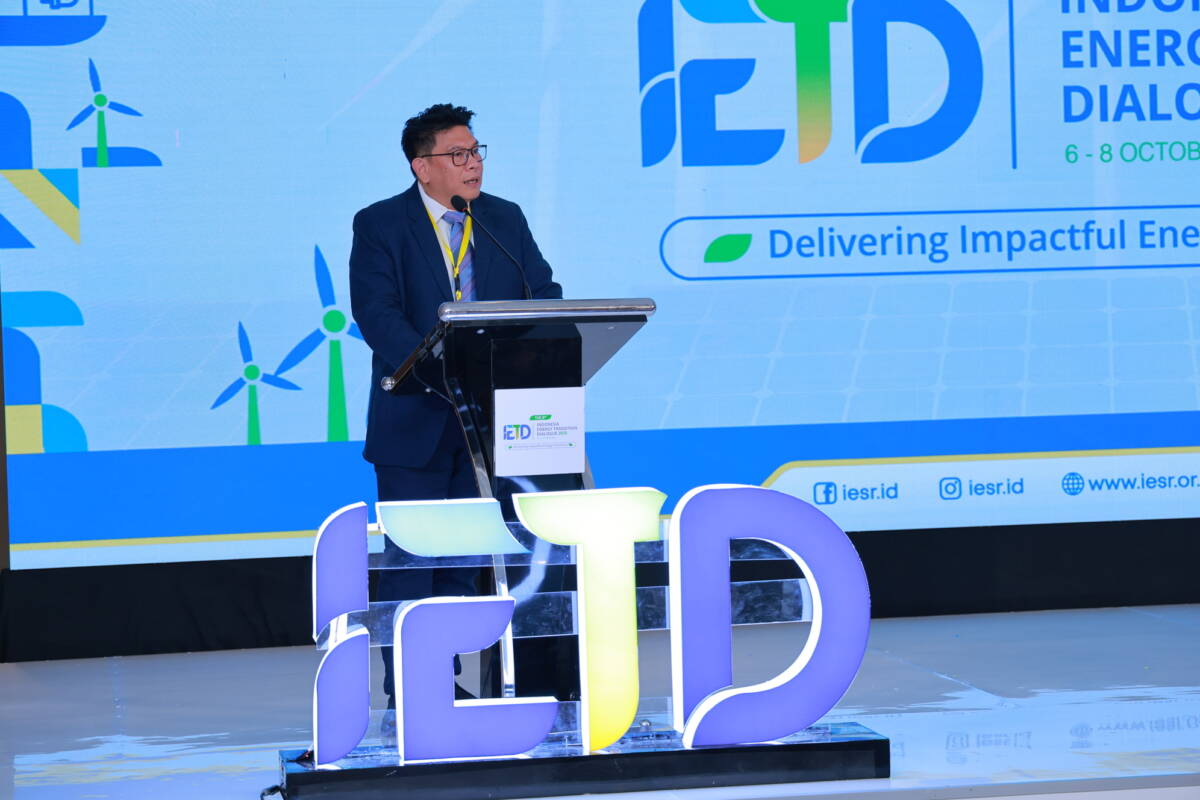Jakarta, October 6, 2025 – President Prabowo’s ambition to achieve 8% economic growth and realize the Indonesia Emas 2045 vision can be pursued through accelerated energy transition. In addition to fulfilling Indonesia’s commitment to the Paris Agreement, keeping global temperature rise to well below 2 degrees Celsius, the transition also opens opportunities for investment and the development of a new, sustainable economy.
The chair of the Indonesia Clean Energy Forum (ICEF), Prof. Mari Elka Pangestu, emphasized that the energy transition is not merely about shifting energy sources, but about redefining the entire development paradigm towards green, resilient, and just economic growth
“To ensure an effective energy transition, strong political will and consistent policies are critical, both from the central and local governments. In addition, we need the right policy frameworks, including the creation of a country platform for energy transition to coordinate international financing and support,” said Mari Elka Pangestu during the opening of the Indonesia Energy Transition Dialogue (IETD) 2025 organized by the Institute for Essential Services Reform (IESR) and the Indonesia Clean Energy Forum (ICEF) with support from the British Embassy Jakarta through the Green Energy Transition Indonesia (GETI) project, held today (6/10/2025) in Jakarta.
Prof. Mari also noted the need for energy subsidy reform to create incentives for clean energy development. Fiscal incentives and carbon regulation must be strengthened, she said, through instruments such as carbon taxes and an emissions trading system. Currently, the revision of Presidential Regulation No. 98/2021 on the carbon economic value is underway, and she stated that this revision will play a pivotal role in determining the future direction of Indonesia’s carbon market.
Matthew Downing, Chargé d’Affaires at the British Embassy in Jakarta reaffirmed the UK’s support for Indonesia’s energy transition.
“In August this year, President Prabowo expressed his aspiration for Indonesia to achieve 100% renewable energy within the next decade. We welcome Indonesia’s bold ambition to shift decisively from fossil fuel-based development to a future powered by renewables and proud to support Indonesia’s energy transition- not only as a trusted partner, but as part of our foreign policy,” said Matthew Downing.
In November 2024, President Prabowo met with the UK Prime Minister and agreed to strengthen and revitalise the bilateral relationship through a new, deeper Strategic Partnership, with climate and energy as a key pillar, along with economic growth, defence and security, and people and society at its heart.
“We look forward to signing this Strategic Partnership with Indonesia in the near future to deliver a just, inclusive, and ambitious energy transition,” added Matthew Downing.
Reflecting on leadership in times of transition Susilo Bambang Yudhyono, Indonesia’s President 2004-2014 underscored the importance of courage and long-term vision in policymaking, while protecting citizens from global economic shocks. He stated that in a world filled with uncertainty, national resilience in the face of global energy price volatility, supply chain disruptions, or geopolitical conflicts will be critical to the success of the energy transition.
Chief Executive Officer (CEO) Institute for Essential Services Reform (IESR), Fabby Tumiwa, highlighted the urgent need to accelerate renewable energy deployment, which has seen slow progress and low investor interest over the past decade. Therefore, there is a need to reform policies and regulatory frameworks to create a more attractive investment climate. In addition to reforming primary energy price subsidies, it is also necessary to restructure the electricity market to allow open access to the electricity transmission and private and community participation in the provision of renewable energy. The government also needs to revise electricity tariffs so that they reflect the actual costs of supply and a healthy margin for PLN, as well as improve the governance of renewable energy power plant procurement. Fabby emphasized that expanding investment in renewable energy and promoting energy efficiency will play a role in maintaining the competitiveness of Indonesian industry in the future.
“The government also needs to support private sector and community involvement in renewable energy access through the Shared Use of Electricity Networks, which should be clearly regulated in the Renewable Energy Bill (EBET) and the Electricity Bill. This step can accelerate the implementation of renewable energy projects. The coal power plant retirements must proceed in parallel with renewable energy development to ensure true energy independence, in line with President Prabowo’s vision,” he emphasized.
According to Fabby, the energy transition can serve as a new engine for Indonesia’s economic growth through five key pillars. First, massive infrastructure investment will channel trillions of rupiah into solar, wind, biomass, and geothermal power plants, as well as smart grids and energy storage systems. Second, the development of domestic clean energy manufacturing will make Indonesia a vital player in global supply chains.
Third, the rise of green jobs will provide opportunities for millions of new workers, including engineers, technicians, researchers, and construction personnel in the clean energy sector. Fourth, productivity will improve as air pollution decreases, leading to lower healthcare costs and a better quality of life. Fifth, greater energy security will emerge as Indonesia reduces its reliance on volatile fossil fuel markets and saves foreign exchange through lower fuel imports.
The Indonesia Energy Transition Dialogue (IETD) 2025 marks the eighth IETD since it was first held in 2018. This year’s event, taking place on October 6–8, carries the theme “Delivering an Impactful Energy Transition”, emphasizing stronger commitments, the realization of domestic potential, low-carbon economic growth strategies, and innovation to overcome barriers in the energy transition.

